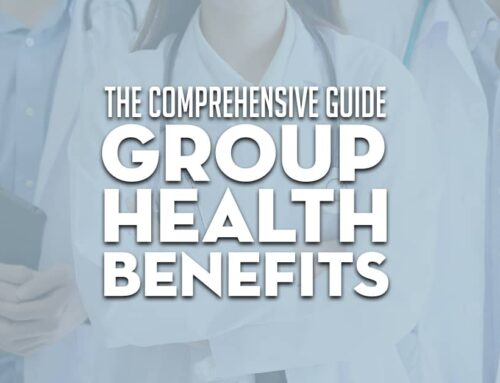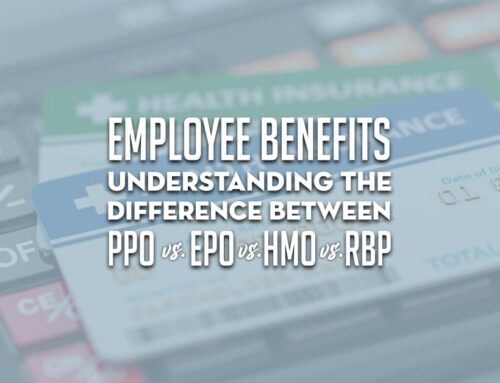As a small business owner, finding the perfect health insurance plan to cover your employees can feel like a mountainous task.
Should you stretch your budget to the max with a low-deductible plan your employees will love? Should you purchase the cheapest plan you can find so you can provide insurance to your employees without breaking the bank? Can you skip providing health insurance to your employees altogether?
At Abbot Benefits Group, we want you to be able to provide the best health insurance options for your employees without jeopardizing your bottom line. Here’s what you need to know about choosing the best health insurance plan for your small business.
Why Offer Health Insurance to Employees?
Small businesses with fewer than 50 employees are currently not legally required to offer health insurance to their employees. However, there are several good reasons to go ahead and offer health insurance.
Increased Employee Recruitment and Retention
The biggest reason to offer health insurance to employees is to increase employee recruitment and retention. Individual health insurance plans can be extremely expensive, so employees want to work for companies that are willing to lower their healthcare costs by providing health insurance.
How much time and money do you spend trying to find – and keep – new employees? Investing in health insurance for your employees could keep them around, reducing your recruitment and training costs.
Healthier Employees
Employees who can afford to access health care when they need it tend to be healthier and may lose less work due to illnesses.
Group Coverage May Cost Less and Cover More
If you’ve been buying your own individual or family coverage on the Healthcare Marketplace, you may be able to get a more affordable plan with more extensive coverage by providing group health insurance through your business.
How Does Small Business Health Insurance Work?
There are a few things you need to know about when considering various small business health insurance plans.
Number of Employees
You must have at least one employee on your payroll to qualify for small business health insurance coverage (although some states let you count yourself as both an employee and the business owner).
Coverage
If you are eligible for a small business health insurance plan, then you, your dependents, your employees, and your employees’ dependents are usually guaranteed by the insurance company, meaning nobody can be denied coverage based on pre-existing medical conditions.
Employee Premiums
You must pay at least half the monthly health insurance premiums for your employees.
Shopping for Coverage
Once you buy a plan, you are usually locked into that plan for at least a year. Prior to choosing a plan, or once your current contract is up, you can shop around to compare various plans to decide which one is best for your company and employees.
Types of Health Insurance Plans
There are 6 main types of health insurance plans, each with its own pros and cons.
Preferred Provider Organization (PPO)
PPO plans tend to be more expensive but offer more choices to patients. Features often include:
- No referrals required to see specialists
- High out-of-network costs
- Larger network of providers than other plans
- Higher premium costs
Health Maintenance Organization (HMO)
HMOs vary widely between insurance providers and states, but they usually:
- Require in-network Primary Care Physician (PCP) referrals to get specialist care
- Don’t cover out-of-network providers
- May have limited providers in the network
- Offer low out-of-pocket costs for staying in-network
Point of Service Plan (POS)
POS health plans offer the lower costs of an HMO with some of the flexibility of a PPO and typically:
- Require a Primary Care Physician (PCP), especially for referrals to specialists
- Have a low or no deductible for in-network care
- Allow out-of-network care, but at a higher cost
High Deductible Health Plan (HDHP)
Sometimes known as catastrophic health insurance coverage, HDHP plans are risky, as they:
- Require a high deductible and don’t pay anything until you have already paid at least $1,300 for your care
- Can be structured as either a PPO or an HMO
- Make regular doctor visits extremely expensive and may cause people only to use it when they have a medical emergency
Health Savings Account (HSA)
HSA plans allow employers or employees to contribute to an account with pre-tax money to help with medical expenses. Features include:
- Must be paired with an HDHP plan
- Account is not reset each year (as it is with an FSA)
- Money withdrawn for non-medical expenses will be taxed and you’ll owe a 10% penalty if you’re under 65
- There’s an annual contribution limit of $3,350 for an individual and $6,750 for a family
Flexible Spending Account (FSA)
An FSA is an account where both the employee and employer contribute to an account that helps cover the employee’s health care costs. FSAs may feature:
- The money paid in by the employee is pre-tax up to $2,550, and the employer can add money to increase the appeal of the health plan benefit
- The employee chooses how much to contribute at the beginning of an annual period and can’t change their mind
- Unspent money reverts to the business owner at the end of the year
The Best Health Insurers for Small Businesses
The best health insurance company for your small business will differ depending on your company’s location, what type of plan you want to offer, and other factors, but some of the best health insurance companies for small businesses include:
- Aetna
- UnitedHealthcare
- Blue Cross Blue Shield (BCBS)
- Humana
- Cigna
- Memorial Hermann
Let Us Help You Find the Best Health Insurance for Your Houston Small Business
Need help choosing the best health insurance plan for your Houston-area small business? Abbot Benefits group can help you select the best medical, vision, dental, disability, and life insurance benefits for your employees. Contact us for a quote today.





